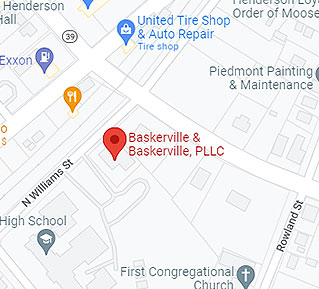 Officers can legally pull over a vehicle for any rule of the road violation – even for speeding 56 miles an hour in a 55-mile per hour zone.Any road violation like speeding, expired tags, no seatbelt, or window tint issue could result in you being pulled over.
Officers can legally pull over a vehicle for any rule of the road violation – even for speeding 56 miles an hour in a 55-mile per hour zone.Any road violation like speeding, expired tags, no seatbelt, or window tint issue could result in you being pulled over.
Often, these are stops that officers engage in to investigate further criminal activity. It’s a broad umbrella that allows them to detain the vehicle, stop the vehicle, and start investigating.
Your Rights As A Motorist & Your Responsibilities To Law Enforcement During A Traffic Stop
People often forget that they have rights when encountering law enforcement.
Always remember, you have the right to remain silent.
You do not ever need to try to explain yourself or negotiate with the officer. You’re never going to win your case out on the scene – you will only be able to win the case in court.
It is also important to remember your responsibilities during a traffic stop…
- If you are driving the vehicle, you must provide a driver’s license or identification card.
- If you’re a passenger, you must identify yourself to the officer, you do not have to provide an ID.
- You have the right to refuse to consent to a search. So if an officer stops you and they ask you to look inside your car, you can refuse that search.
However, if the police officer believes that your car contains evidence of a crime, your car can be searched without your consent. That’s why it’s always my legal advice to never consent to any search.
Think about it this way: If the officers have the legal authority to search you or your car without your consent, why would they ask you for permission?
What To Do If You Are Pulled Over?
I advise my clients when they are stopped to pull the car over in a safe place, as quickly as possible, and in a well-lit spot.
Then, you should turn the car off, turn on the internal light, and roll down the window part-way. Do this so that you can hear the officer and the officer can hear you – and so that you can pass your driver’s license, insurance, and registration through the window.
You do not have to roll the window all the way down – you only have to open the window part-way and place your hands on the wheel.
Additionally, you have the right to ask the officer why they stopped your vehicle. Officers don’t have to tell you why they pulled you over, but they do have to tell you what you’re being charged with if they give you a citation.
While they don’t have to tell you the reason why they stopped you, that reason does have to be established in court if your case goes to trial – or if you challenge your arrest.
Vehicle Searches
If an officer believes your car contains evidence of a crime, they have the right to search your vehicle without your consent.
If an officer asks for consent to search your vehicle and you give permission freely, that ties your lawyer’s hands behind their back. Once you give consent, we can’t argue that the search was unconstitutional – because you agreed to it.
Giving consent waves your Fourth Amendment Constitutional right against unwarranted searches and seizures. That’s why you never consent.
If an officer believes that your car contains evidence of a crime, they will be able to search your vehicle without your consent. Therefore, the purpose of refusing consent is that it reserves your right to argue in court that the officer performed an illegal search.
Understanding The Terry Frisk
 Officers have the right, during a traffic stop, to perform what’s called a pat down. (In legal terminology, this is called a Terry Frisk.)
Officers have the right, during a traffic stop, to perform what’s called a pat down. (In legal terminology, this is called a Terry Frisk.)
For personal safety concerns, an officer can pat down the outside of someone’s clothing to determine whether or not that person has a weapon on them. Once they feel the outline of a weapon, then they have the right to go inside the pockets to retrieve that object.
At that point, if an officer finds a weapon or pulls drugs out of your pocket, the officer has the right to search anywhere in the vehicle that was within your care, custody, or control.
This means they are able to look everywhere inside that vehicle that someone could reach to hide a weapon or hide drugs. They can search the front seat, the front passenger seat, the back driver seat, and the back passenger seat – but they cannot search the trunk without a warrant.
Remember, an officer will not ask your permission to pat you down, they are going to perform a Terry Frisk based on the officer’s safety.
In Conclusion…
You have the right to:
- Know what you’re being charged with,
- Refuse any searches,
- Remain silent, and
- Have the officer identify themself by name and badge number.
I advise all my clients not to give up any of their rights and, in fact, exercise them all.
So, ask the officer: “What’s your name and badge number?” Ask them, “Why did you pull me over?”
Remain cooperative and respectful, but do not submit to anything that is within your rights to refuse.
Some Important Things To Keep In Mind
I advise my clients to ask the officer, “What exactly is the reason for this stop?” They don’t have to tell you, but I advise you to ask this question for a variety of reasons…
Number one, if the officer has a body camera or a dash camera, their basis for stopping your car will be captured on tape. Asking these questions forces an officer to stick with consistent reasoning throughout the entire case.
This way, if they try to come up with a different reason for stopping your car later on down the road, we can establish that there was no reasonable or articulable suspicion to stop the vehicle.
Are You Free To Leave?
If you feel uncomfortable with how the stop is going, I advise my clients to ask this question: “Am I being detained, or am I free to leave?” This is a very, very important question.
Why? If you are being detained, then constitutional protections are triggered concerning your Fourth, Fifth, and Sixth Amendment Rights. If you are not being obtained, you may soon be free to leave.
| The 20-Minute “Rule”
The United States Supreme Court has ruled that officers can detain someone without a charge on the side of the road for about 20 minutes. This is not an exact time, but in every case, officers can detain you on the side of the road to investigate potential crimes for around 20 minutes without a charge. That’s 20 minutes for them to get their sergeant out there, to make whatever investigatory calls they need to make, and to get drug dogs to walk around the car. |
So, again, if you’re feeling uncomfortable – the most important thing to ask an officer during these traffic stops is, “Am I free to leave, or am I being detained?”
If the officer says that you are being detained, the clock starts ticking for them to form probable cause and place you under arrest for a crime – or to release you.
If the officer says you’re free to leave, don’t wait around. You need to leave as soon as possible. If the officer says you’re being detained, the clock starts ticking.
Doing Your Own Investigation
While you’re engaging with the police, you need to be doing your investigation. Make sure to take note of the circumstances around you during your interaction with law enforcement. You may want to pay close attention to things like:
- The traffic conditions on the road,
- What the weather is like,
- What time it is,
- The exact location of the stop,
- The road conditions,
- And more…
While the officer is doing their investigation, you’re doing your investigation as well and making note of anything that may be relevant if you decide to challenge your case in court.
For more information on Traffic Violations In North Carolina, an initial consultation is your next best step. Get the information and legal answers you are seeking by calling (252) 572-4495 today.

(252) 572-4495
